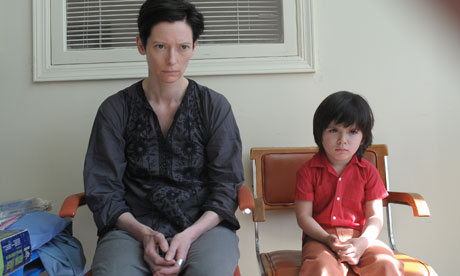I applaud the BBC’s decision to dedicate a monthly review show to books. Whilst I have previously ranted about the Channel 4 equivalent, this was a well-produced and intelligent programme. Kirsty Wark chaired discussion in the studio, where the panel included Germaine Greer and Daisy Goodwin, Bettany Hughes presented the short-list for this year’s Orange Prize, Lionel Shriver described her experience of having We Need to Talk About Kevin made into a film, whilst Joanne Harris, Ruth Rendall, Faye Weldon and Lesley Pearce were left to their own devices. With the exception of a selection of Terry Wogan’s favourite reads, the theme, as can be seen, was ‘All About Women’.
I come from a business background where I never felt discriminated because of my sex. In fact, my male colleagues may well have had a case to argue that I was paid better than them and promoted above them. However, the world of publishing appears to be a different place. Many authors I have met are bemused/bewildered/surprised/infuriated by marketing departments’ decisions to promote their work as ‘women’s literature’ and, in some cases, as ‘chick-lit’. Joanne Harris’s experience seems to be similar. She said that marketing departments, whose staff seldom read the books they promote, have a particular idea of market demographic which is seldom reflected in the material. “People look at the woman and then allocate the genre of the book.” Lesley Pearce told of how one of her covers featured a watering can which had no relevance to the plot and went on to recall that for one of her first publicity interviews she was asked to pose with her typewriter by the kitchen sink.
This year’s shortlist for the coveted Orange Prize covers diverse issues: confinement, disability, institutionalisation and living with conflict. Not your typical women’s fare. Perhaps a little worthy. It was clear from the studio panel’s comments that some of the selection are controversial choices. Speaking of Great House, “One of the coyest books I have ever read”, it was felt that the multiple narrator’s voices were not sufficiently distinct and of The Memory of Love, “I dreaded a new character entering the novel because each character had such a desperate story to tell.” Ruth Rendall, whose father claimed to be proud of the fact that he had never read a book written by a woman, is against a prize solely for women. Joanne Harris, who previously judged the award, admitted that she felt uncomfortable doing so, but has since come round to thinking that there is a case for positive discrimination. I would have liked to hear the panelists’s replies to Germaine Greer’s question of why, having established a seperate award for women, we give it to the same sort of books as the Booker Prize, but time restraints left the thought hanging.
Lionel Shriver, author of We Need to Talk About Kevin, is not the first woman writer to change her name to something she considers to be gender-neutral (although this might be argued). However her decision was also influenced by a desire to make her name hers, to own it. The downside appears to be that she is rarely recognised. Speaking of her red carpet experience at the Cannes Festival, where the film version of the book debuted to high acclaim, she advised that she spent a great deal of money on a new dress. Not a single photographer took a picture of her. “The writer,” she concluded, “is as the bottom of the totem pole.”
Daisy Goodwin (I liked her a lot) was alone in calling for a halt to the whinging. Most readers are women: we’re outselling male authors.
And then we had Sir Terry. I was not quite sure where he fitted into the theme. Except perhaps to prove with his selection of books – and it was not a bad selection – that men really don’t read books written by women. Oh yes – and he likes his books to be short.


